Are you interested in simple living but you’re not sure what it is and where to start? Keep reading to find out all about simple living and for 10 tips to simplify your life, reduce stress, and live better.
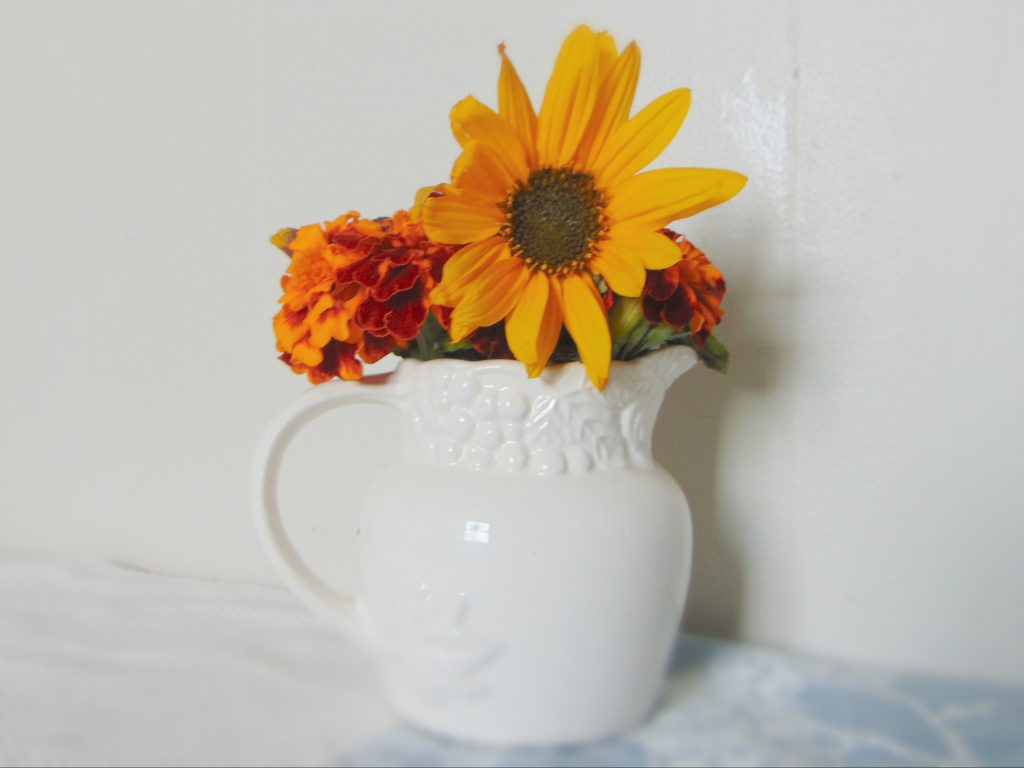
What is simple living?
Simple living is all about making your life simpler, less complicated, and ultimately more enjoyable. Simple living is about cutting out what’s not essential to make space for what is. It’s also about stepping away from the consumer mentality that makes us feel we need more (items) in order to be happy.
So simple living is also about replacing possession and consumption with production. Also replacing that fake idea of happiness that comes from buying things, with the real satisfaction that comes with making things. Often times a simple lifestyle includes: growing and raising your food, or simply sourcing ingredients more mindfully; cooking from scratch; homemaking; handmaking items; relying less on modern conveniences such as technology.
Simple living also means spending more time at home, close to the people you love, and doing the things you enjoy. It’s about living at a slower pace and according to the rhythms of nature (day and night, seasons).
Simple living is a balanced combination of taking away and adding. Getting rid of the things that make life more chaotic and stressful, and adding the things that make life easier and more enjoyable.
For some, this might look like quitting their jobs, moving out to the middle of nowhere, and producing all of their food and necessities. For others, simple living might look like getting rid of a few things and obligations that cause stress and spend more time at home and enjoy a slower life with their families.
Is simple living the same as minimalism?
Simple living and minimalism have many common grounds, such as reducing possessions, shifting priorities, and living with less while enjoying life more.
Minimalism, however, is oftentimes an ideology where people focus on reducing their possessions, and it has even become an aesthetic movement.
Simple living, on the other hand, is more of a state of mind than an ideology. People interested in simple living focus on simplifying their life and shifting away from the consumer mindset, towards a more home-based and hand-made life. Rather than owning less, simple living focuses on using what we have in the most efficient way possible, and in a way that works for us.
Not every minimalist practices simple living, and not every simple liver is a minimalist.
For example, minimalists might own an ebook, whereas simple livers might prefer to ditch technology and have shelves full of books. Minimalists might live in a tiny urban apartment and only own one pot and one pan. Simple livers typically (even though not always) live in a more country setting, and often need many more items in their kitchen to prepare, cook, and preserve all their food from scratch.
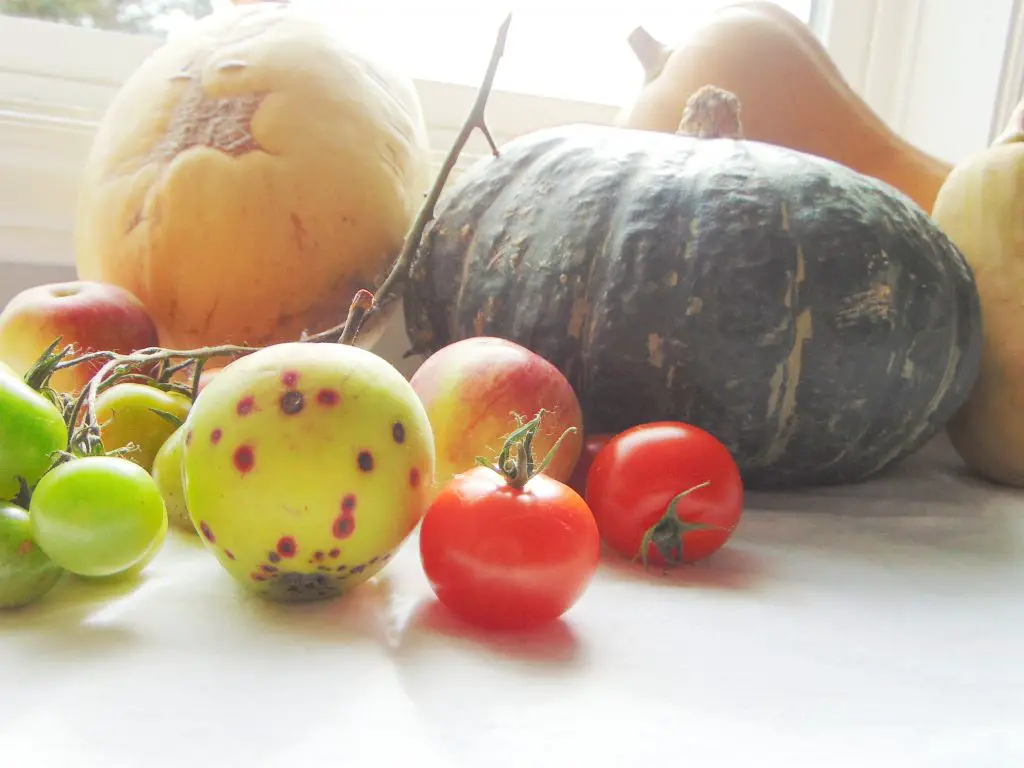
What are the benefits of simple living?
Simple living comes with many benefits such as:
- Reducing stress: by simplifying many aspects of our lives, and encouraging a more natural, slower existence, simple living reduces stress and anxiety that are related to the frenetic, oeverstimulating modern lifestyle
- Increasing fulfillment: focusing on the things that are important for us and make us happy, and being able to be more productive and actually create something tangible with our own hands give a geneuine sense of fulfillment that can be rarely achieved by a more materialistic lifestyle
- Improving creativity and concentration: slowing down and spending more time in nature and doing things with our hands naturally increases our creativity and concentration, which in turns make us being more productive and fulfilled
- Saving money: simplifying your life, stopping buying unnecessary items, and being more self-sufficients will also make you save money in the long run, and help you live within a tight budget (which will also contribute to reducing your stress!)
- Increasing sustainability: by reducing the consumption of goods, relying less on the industrial system, and encouraging self-sufficiency, simple living is good for the environment too
- Improving health: just by simply reducing stress and increasing fulfillment, simple living can contribute to improving mental and physical health and well-being. But that’s not all. Your health will also benefit from a healthier diet and lifestyle that come with simplifying your life and live closer to nature
10 tips to simplify your life
1. Find the beauty in less
The first tip towards simple living is burrowed from the minimalist movement: living with less. But for this to truly work, you also need to enjoy having less, and find the beauty in it. Possessions and clutter can be a real burden, and reducing them can immediately give a sense of freedom, peace, and purpose.
So, go ahead and declutter your home and life from all the things that you don’t need, or don’t like anymore. This goes for furniture, clothes, toys, and utensils that you have in your house, but also other material possessions (such as vehicles and second homes), digital products (such as apps and social media), and even lifestyle choices.
The general rule is if you don’t use it, don’t need it, and it doesn’t bring you joy, then get rid of it! But, remember, the purpose of decluttering is not to get rid of things just so you can go out and buy new ones! So, keep what you actually need and use.
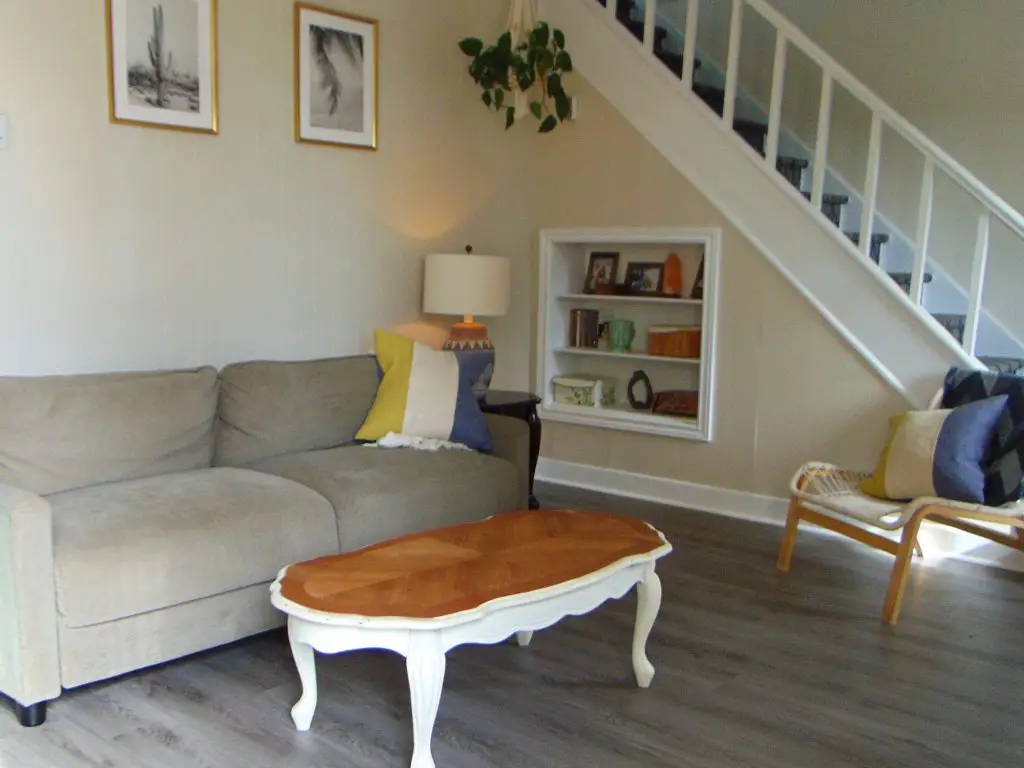
2. Choose quality over quantity
The beauty of having less is that you can have better things.
For example, instead of having a closet overflowing with cheaply made clothes that will only last a few months, choose a few clothing quality items that are well-made, you actually like and can wear comfortably, and that will last many seasons. This will make you save money in the long run, and put an end to that sense of overwhelming that comes with opening a closet full of clothes and having nothing to wear!
But the same principle goes for everything else in your house and life. Furniture, food, and even people. Always prefer quality over quantity.
3. Embrace the emptiness
Whether is an empty room, an empty wall, or empty time, embrace it! Declutter whatever you don’t need out of your home, your closets, and your schedules, and experience the liberation that comes from it!
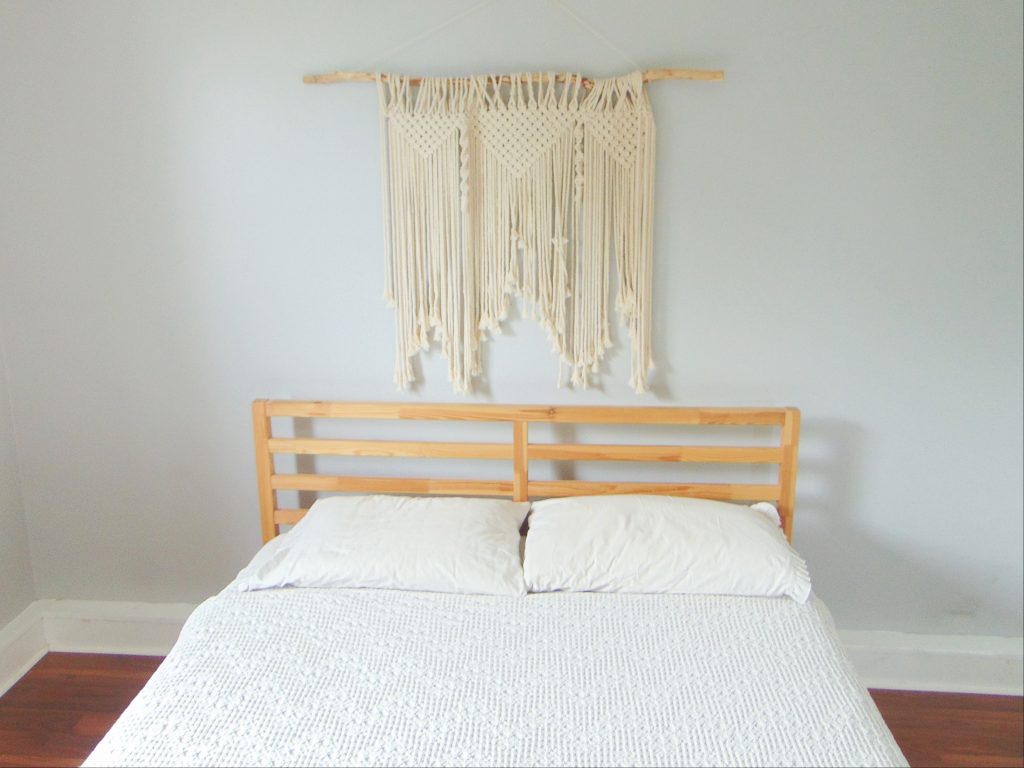
I find that oftentimes when people want to simplify their life, they mostly focus on decluttering their possessions. This is important and great. But also making an effort to free some of your time is as important. Remember, as physicist Albert-László Barabási once wrote “Time is our most valuable non-renewable resource, and if we want to treat it with respect, we need to set priorities.”
For example, does your child really need to be enrolled in 5 different extra-curricular activities that result in you being out on the go every evening of the week and skipping a relaxed family dinner together? The answer is probably NO. So, if you feel stressed out about your over-filled schedule, review your priorities and expectations. Maybe your child can pick one of two activities they like the most, and you can prioritize being home with your family for the other weekly nights.
4. Be more conscious about your choices
When you are simplifying and decluttering your life, your house, and your habits, try to do so intentionally and mindfully. Make choices that are conscious and that work for you and your family.
Choose the things that work for YOU, and make YOU happy, even if those things are not popular. Whether this is related to the items you keep in your house or the activities that you want you and your family to be doing, give it some thought and don’t be afraid to be “unusual” or to say NO!
5. Slow down
Simple living is as much about living with less and reducing your clutter as it is about living a slower life.
Start by enjoy tasks that take time and patience (such as gardening or cooking, or simply sitting down and reading a good book), being fully in the moment, and (importantly) stop multi-tasking so much! And don’t forget to clear your schedule so that you can have plenty of downtime to enjoy by yourself or with your loved ones.
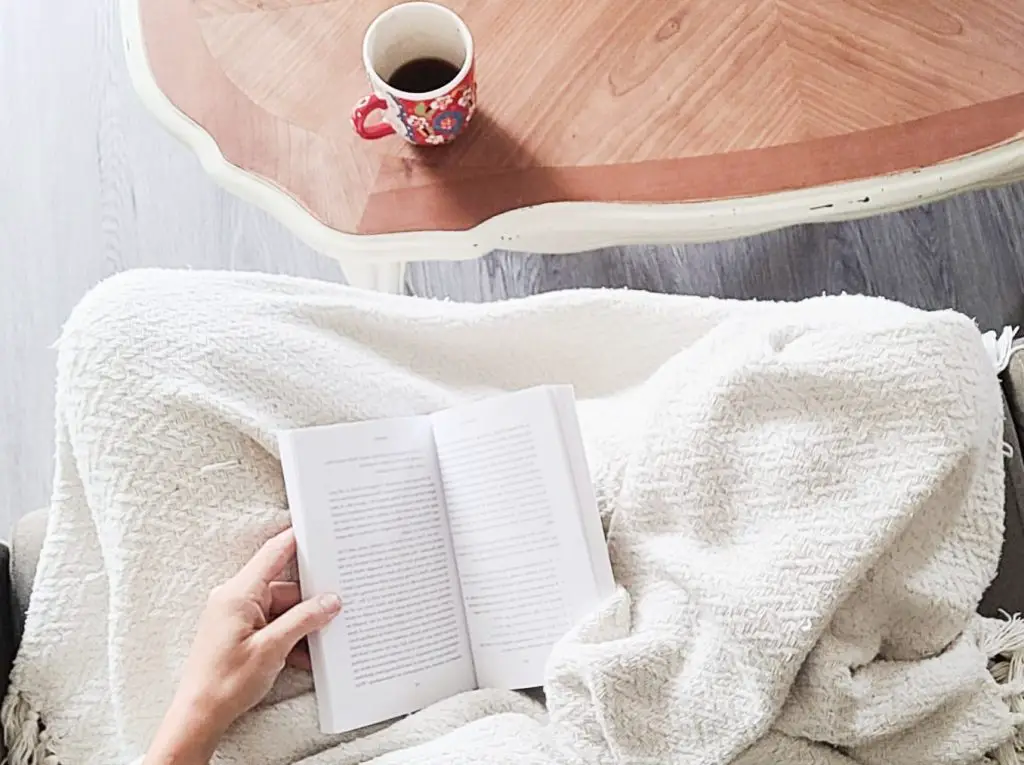
6. Get back to basics
Simple living is also about ditching the modern lifestyle full of commodities, in favor of a more traditional way of living. Learning old-fashioned skills is an important part of living a simpler life, and make us more self-sufficient and resilient.
The great part is that by simplifying other aspects of your life, you’ll now finally have enough free time to learn those skills and start those activities or projects you’ve been dreaming about.
Maybe you could start a vegetable garden (learn how to start a garden on a budget here), or maybe refine your cooking skills, or even start a homestead, or whatever it is that you value and brings you joy.
7. Simplify your diet
Eat home, cook from scratch. Choose genuine ingredients that you and your family like and that make you feel good, and turn them into simple, delicious meals.
Cooking from scratch doesn’t need to be complicated. You can start by learning a few pillar recipes that you make weekly, and then experiment with new recipes once in a while when you feel like it.
Have a list of staples that you need to cook your meals and try having them always on hand. For example, have plenty of meat in your freezer, eggs, yogurt, and vegetables in your fridge, a good source of fat and good sea salt, and some fruit and honey as sweet.
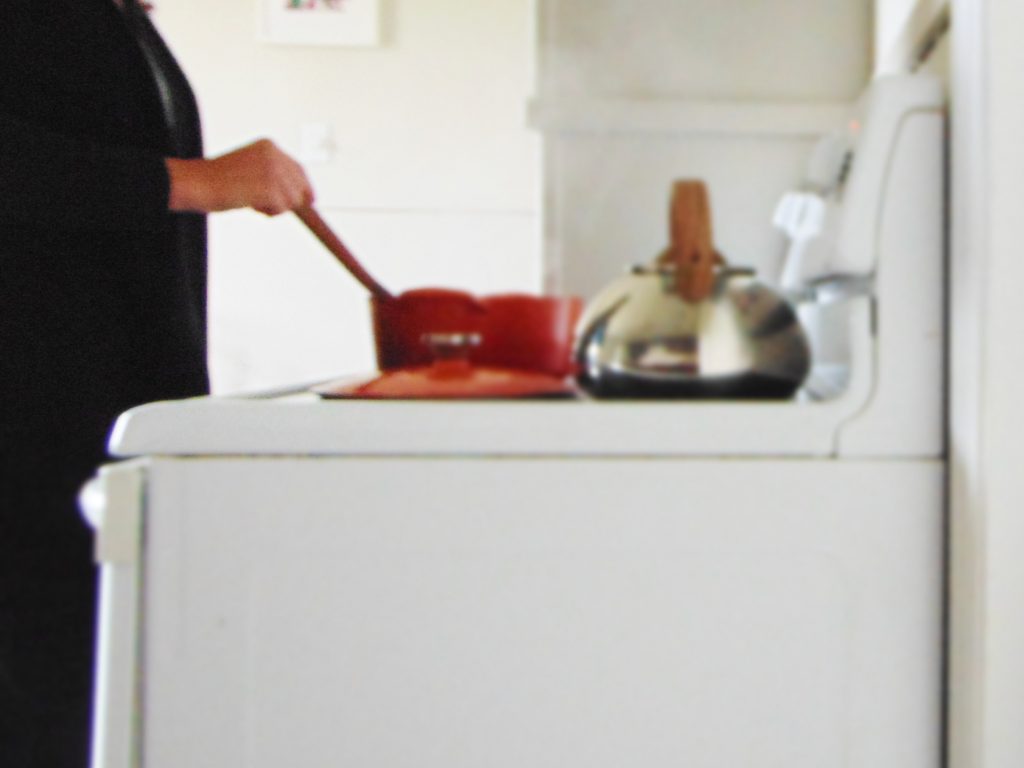
8. Simplify your lifestyle
First of all, stop overthinking and over-planning. People that are looking to simplify their life often feel they need these complicated systems in place. Meal planning, time planning, chores planning systems and schedules, overly organized capsule wardrobes that need to stick to a certain number of items, step-by-step plans, and even apps or software to keep everything organized.
Well, let me tell you this. Simplifying your life should be simple, not overly complicated. So start by winging it a bit more. Often times simple solutions are just best.
So rather than following a complicated “productivity method”, simply do the most important task you need to do first, and then do the rest. Rather than following a complex diet with rules and portions, simply eat more of the foods that make you feel good, and less of the ones that don’t. Rather than investing in a personal trainer or fitness program, simply move your body more (find 10 fun ways to exercise more without working out here).
Start by spending more time in nature (and benefit from spending more time outdoors) and less time using screens and technology; by buying less, and producing more, and acting rather than overthinking!
The list can go on and on, but you get the idea: find the simplest, less complicated way to do the things you need to do and your life will be simpler!
9. Simplify your schedule
As I already mentioned in step 5, try freeing some of your time. Stop overcommitting yourself and overcomplicate your schedule!
Set your priorities and fit them into your daily routine. Once you completed the most important tasks, see how much time and energy you have left and decide whether or not you can accomplish more that day.
I always try to keep at least a couple of hours every day for “downtime“, with no set plans or things to do. I spend those hours with my family, and we do whatever we’re up to at that moment. Sometimes we just feel like being at home or in the backyard hanging out and playing together, other times we go to the park or for a hike, or to the beach. Very often those moments when we didn’t plan anything in advance end up in the best, most spontaneous adventures and the memories we’ll cherish forever.
Another thing that I make sure of is to have a free schedule around dinner time. For us, sitting down at the table as a family and eating a delicious cooked meal is one of the top priorities, and I always make sure to work every other commitment around that so that most evenings I have enough time to prepare dinner and eat together with my family. This might mean saying no to activities that take place in the late afternoon or evenings.
10. Give yourself time and grace
Finally, as always when you make any changes in your life, give yourself plenty of time and grace. Simplify your life doesn’t have to happen all at once and certainly doesn’t need to add stress to your life.
So if today all you can change is organize your spice cabinet in your kitchen, or let go of that weekly activity that you really don’t like, give yourself a pat on the shoulder for just starting out and enjoy the benefits that come with your decisions!
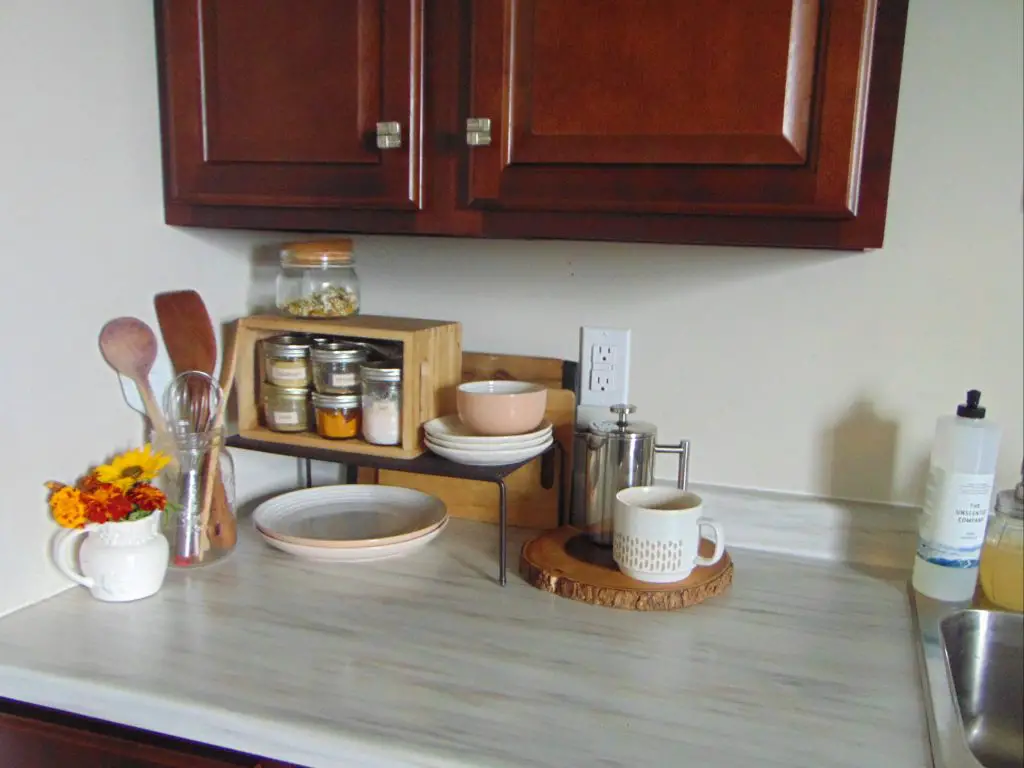
If you enjoyed this post, leave me a comment down below to let me know where you are in your own journey, and share your own strategies towards simple living if you’d like.
Related posts
Health Benefits of Spending Time Outdoors
10 (Fun) Ways to Exercise More Without Working Out
Morning Sunlight Benefits: Circadian Rhythms, Mood, and More
How to Start a Vegetable Garden on a Budget
Pin it for later
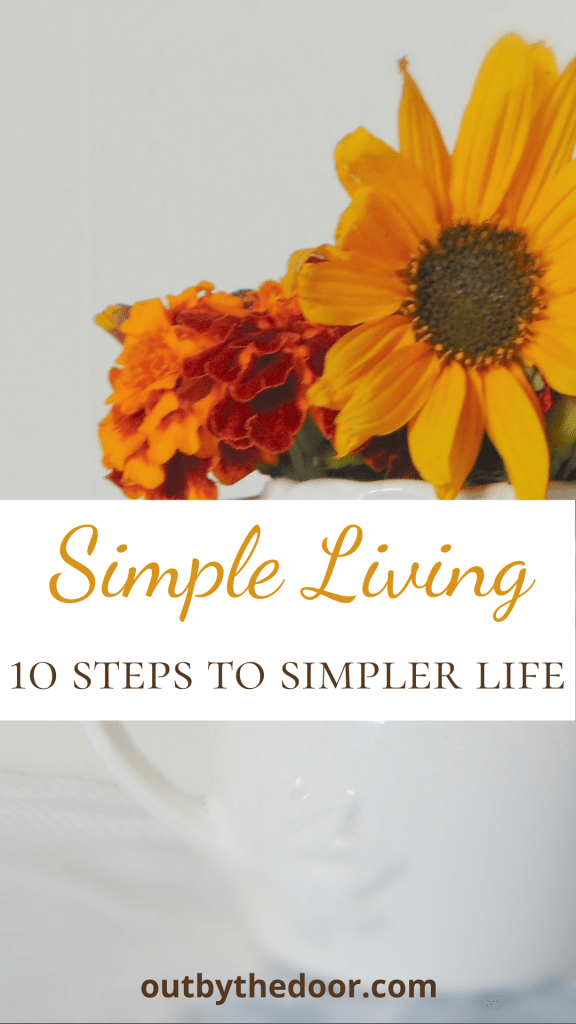


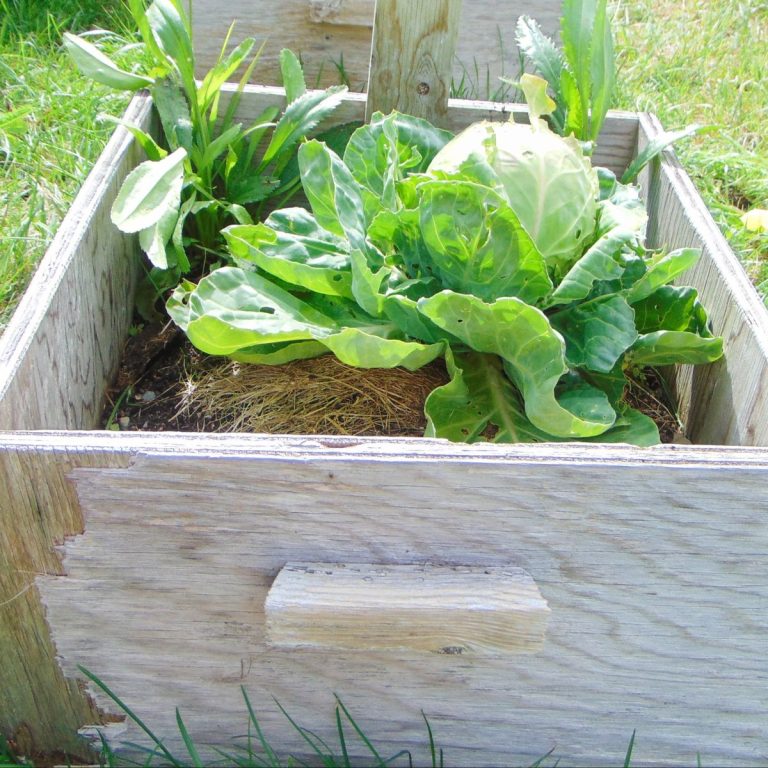


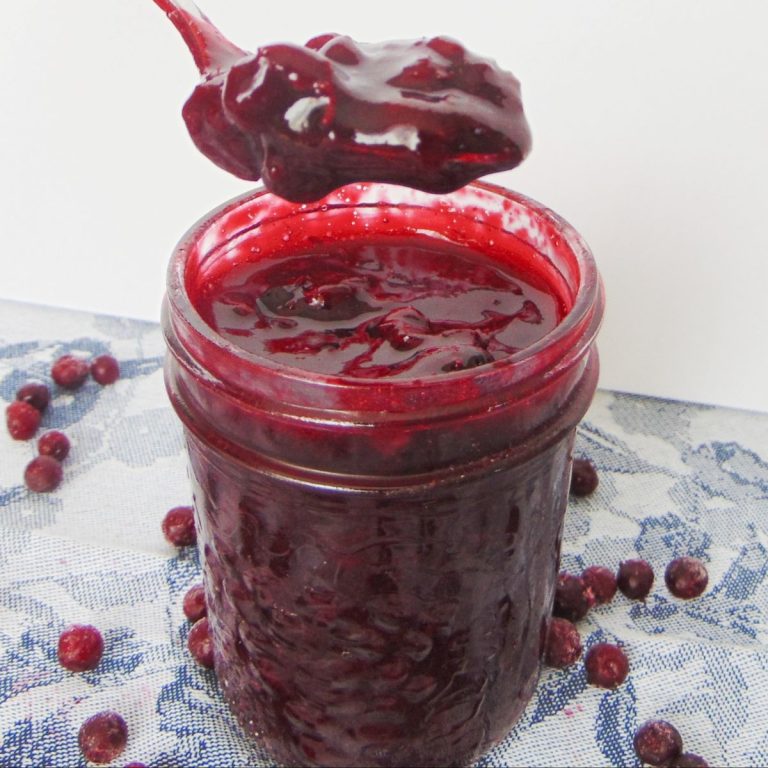

Love this post! I think simple living is the cure to what ails most of our society today. A simple, pleasurable walk outside, doing meaningful work, or rocking in a rocking chair on the porch while observing nature can do wonders!
Love these ideas! What a good reminder today
Thank you very much 🙂
Absolutely! Thanks for the lovely words 🙂
I agree with all of these. Great tips!
Beautiful post! Very much agree with everything you wrote! Simple living has changed our lives in incredible ways!